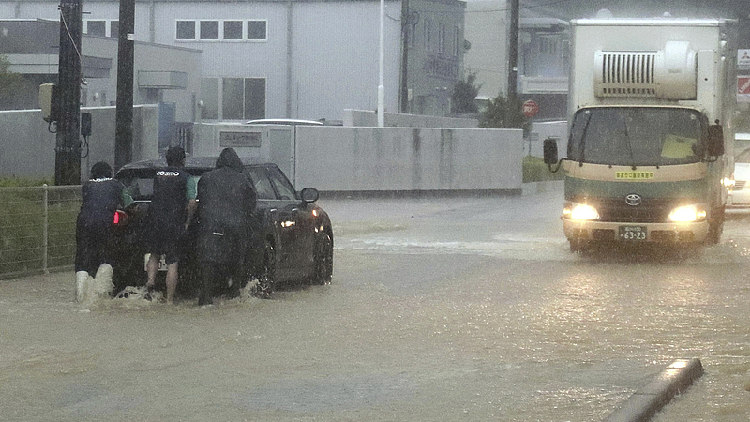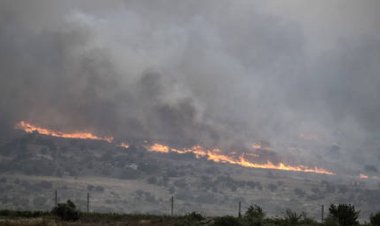Heavy rain hammers regions in Japan still recuperating from fatal earthquake
Heavy rain is drenching areas of Japan that are still in the process of recovering from a devastating earthquake.

The Japan Meteorological Agency issued the highest level of heavy rain warnings for several cities in Ishikawa prefecture, with Wajima being the hardest hit. Authorities have reported one person as missing in the area.
As of late Saturday morning, at least 12 rivers in Ishikawa had breached their banks, according to the Land and Infrastructure Ministry. Residents were urged to exercise extreme caution regarding potential mudslides and structural damage.
Forecasts predict up to 20 centimeters of rainfall in the region over the next 24 hours, continuing through Sunday noon, due to the rainbands bringing torrential rain to the Hokuriku region, as reported by the JMA.
"Heavy rain is hitting the region that had been badly damaged by the Noto earthquake, and I believe many people are feeling very uneasy," said Chief Cabinet Secretary Yoshimasa Hayashi.
Hayashi emphasized that the government's top priority is search and rescue operations, stating, "puts people's lives first." He called on residents to stay vigilant regarding weather updates and evacuation advisories, urging them to take preventive measures early. He also noted that Self Defense Force troops have been sent to Ishikawa to assist in rescue efforts.
Currently, there have been no reports of injuries due to the heavy rain. However, many homes have experienced flooding, and residents in two districts of Wajima are stranded due to landslides, according to the prefecture. Numerous roads were blocked by muddy water, and approximately 6,500 homes were reported to be without power by Hokuriku Electric Power Co.
Additionally, heavy rain affected the nearby northern prefectures of Niigata and Yamagata, raising fears of flooding and other damages, according to officials.
Earlier this year, a magnitude 7.6 earthquake struck the area on January 1, resulting in the deaths of over 370 people and damaging critical infrastructure. The repercussions of this disaster continue to impact local industries, the economy, and daily life.
Jessica Kline contributed to this report for TROIB News
Find more stories on the environment and climate change on TROIB/Planet Health












